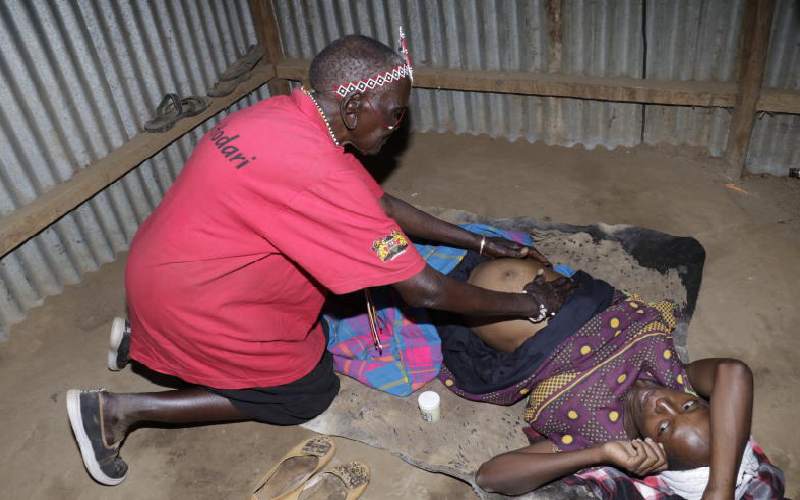×
The Standard e-Paper
Join Thousands Daily

Nasarin Naboru attends to an expectant woman at her house in Ilng’arua, Baringo South Sub-county. [Harun Wathari Standard]
Unable to reach a health centre in the middle of the dusk to dawn curfew, Catherine Twili, from Mutei village in Mbooni, delivered her baby alone at home.